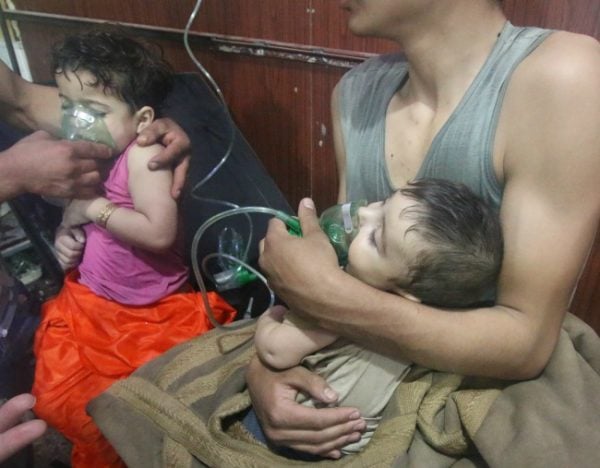Late on Saturday, as babies slept, multiple barrel bombs could be heard falling from the sky in the suburb of Douma, east of Demascus in Syria.
The bombardment would not stop until 11am the next day.
According to Moaed Dumane, a political science student who was hiding with his family and neighbours inside a shelter, heavy shelling and airstrikes attacked everything outside that moved.
On Sunday morning, Dumane left the shelter and noticed a “strong, strange smell”. He also saw that many families who had been in their homes were now fatally trapped.
This scene was not new to Dumane, who has lost 33 family members in the seven years since the Syrian civil war began, including his father and brother who were executed by the Syrian government.
President Donald Trump has responded to the chemical attack. Listen to the latest episode of our Trump podcast, Tell Me It’s Going To Be OK.
Dumane has in the last 24 hours fled Demascus, telling The New Yorker: “I’m packing all the videos and photos I collected that we took of the city. These are the last memories that we have. There’s something we cannot take with us. We cannot take our families who are buried in the ground.”
He will also take with him the memory of the lifeless faces he saw on Sunday.
“Their pupils were narrow,” he writes. “Most victims were women and children. It was a horrific scene. The smell was extremely strong.”
The smell Dumane is referring to is thought to be one resembling chlorine, an odour now being omitted by the bodies that had absorbed the deadly chemical cocktail, including Sarin, a toxic nerve agent, left by the bombs.

